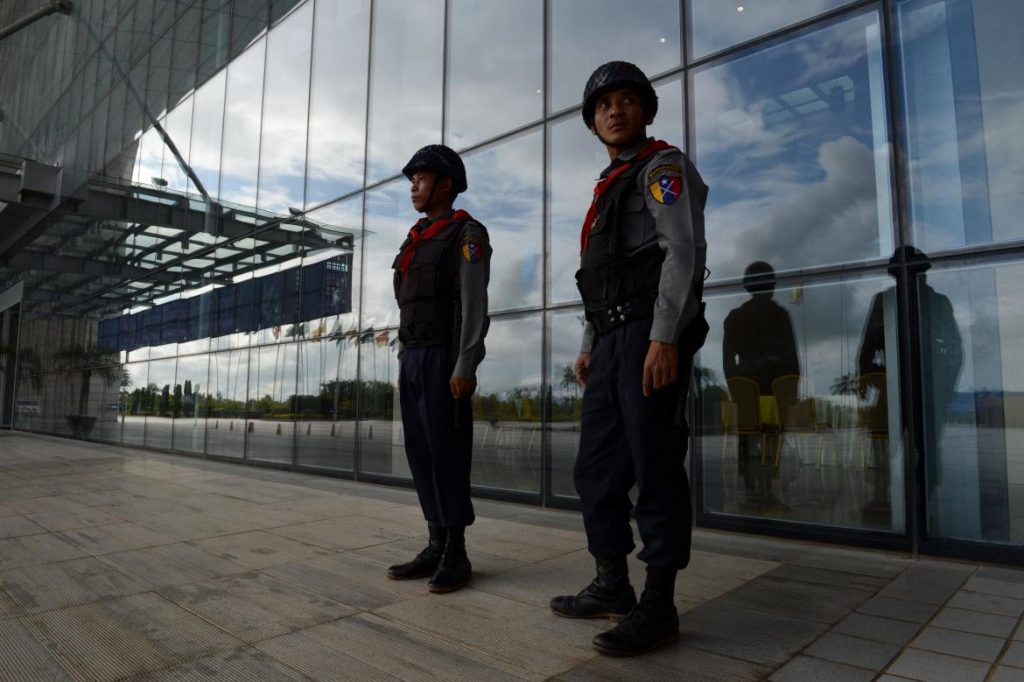By AFP
NAY PYI TAW — Fresh fighting between ethnic minority rebels and Myanmar’s military is overshadowing an upcoming peace conference led by Daw Aung San Suu Kyi’s government, people involved in the talks said Tuesday.
The five-day gathering, which officially opens on Wednesday, is Suu Kyi’s first big drive to end multiple insurgencies that have raged in Myanmar’s borderlands since independence in 1948.
Organisers have been pushing for a unilateral ceasefire before the UN-backed talks.
Support more independent journalism like this. Sign up to be a Frontier member.
But those hopes have been shattered by renewed outbreaks of fighting, negotiators from both the rebels and the government told AFP.
Several rebel groups have failed to down their weapons — a precondition demanded by the military for them to attend.
Troops also remain locked in combat with ethnic fighters hours before UN Secretary-General Ban Ki-Moon, who will attend the conference, is due to give a press conference later Tuesday.
Representatives from the insurgents said the military had launched new attacks on rebel positions in Shan and Kachin states on Tuesday morning. They said the move threatened to scupper progress at the peace talks.
“For the moment it is hard for any group to believe or trust the army,” said one negotiator for the armed rebels, who asked not to be named as the talks are sensitive.
“Here they are talking about peace, there they are fighting,” the negotiator added.
Rebels from some of the worst-hit states want the military to declare a unilateral ceasefire and appoint an international figure to oversee its observance on the ground, the negotiator said.
Some 220,000 people are currently displaced by ongoing fighting in Kachin and Shan states and by sectarian tensions in the western state of Rakhine, according to UN figures released this week.
Since taking power earlier this year, Aung San Suu Kyi’s government has pushed to expand a shaky ceasefire signed between the previous military-backed administration and eight armed groups.
But under the junta-era constitution the military retains control of key centres of power including the border and defence ministries.
“The government faces pressure dealing with the military in this case, as well,” said one civilian government negotiator.
Armed groups hope the peace talks will pave the way towards a federal system for Myanmar.
That would give ethnic groups — who have complained of decades of oppression and neglect by the central ethnic Bamar majority — some autonomy over their government, land and resources.







